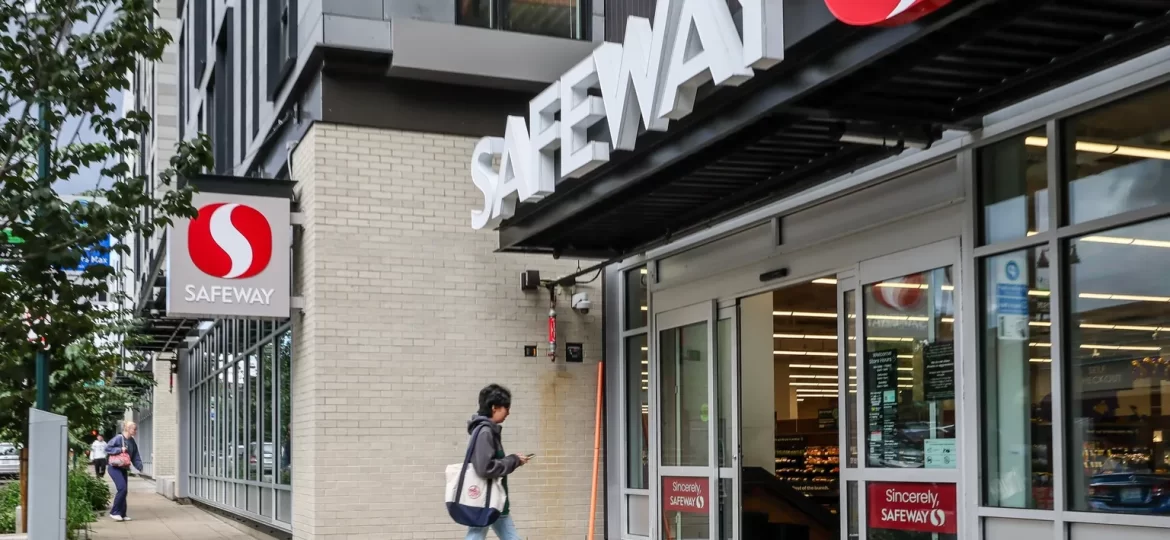
FTC Files Lawsuit to Block $24.6 Billion Kroger-Albertsons Merger
The Federal Trade Commission filed a lawsuit on February 26th challenging the $24.6 billion proposed Kroger-Albertsons merger, a deal which could unite the two largest supermarket chains in the U.S.
The complaint, filed in an Oregon federal court, cited harmful impacts of a successful merger on consumers, including increased grocery prices, and decreased quality and services.
Henry Liu, Director of the Federal Trade Commission’s Bureau of Competition underscored these impacts in a press release published by the FTC, also noting the effects the merger would have on grocery store workers, who he claims would face dwindling wages and benefits.
“Kroger’s acquisition of Albertsons would lead to additional grocery price hikes for everyday goods, further exacerbating the financial strain consumers across the country face today,” he said, “Essential grocery store workers would also suffer under this deal, facing the threat of their wages dwindling, benefits diminishing, and their working conditions deteriorating.”
Phil Weiser, attorney general of Colorado, already sued to block the merger earlier this month for violating state antitrust laws. Kroger currently controls roughly half of the supermarkets in Colorado, operating 148 stores under the King Soopers and City Market banners; Albertsons operates 105 stores in Colorado under Safeway and Albertsons banners.
On February 15th, a day after Weiser filed a complaint, The United Food and Commercial Workers (UFCW) filed an additional complaint against Kroger and Albertsons, claiming unfair labor practice charges due to an alleged “no poaching” agreement between the two companies.
According to the complaint, Kroger and Albertsons entered into the agreement after unionized workers at 78 King Soopers stores in Colorado went on strike. Fearful of losing employees to Albertsons, Kroger made a deal with Albertsons agreeing that Albertsons would not hire any King Soopers employees for the duration of the strike.
Weiser’s suit requests civil penalties of $1,000,000 from both Kroger and Albertsons for violating §6-4-104 of Colorado’s Antitrust Act, citing the “no-poach” agreement as a “naked restraint of trade”.
The leading premises of the FTC’s suit include an “inadequate divestiture offering”, as well as harm to consumers and workers.
In an attempt to obtain regulatory approval, Kroger and Albertsons announced a divestiture plan with C&S Wholesale Grocers back in September 2023, agreeing to sell 413 stores across 13 states for $1.9 billion.
The FTC complaint claims the divestiture proposal is an inadequate “hodgepodge of unconnected stores, banners, brands, and other assets that Kroger’s antitrust lawyers have cobbled together and falls far short of mitigating the lost competition between Kroger and Albertsons”.
A federal judge will ultimately decide whether or not to grant the FTC’s request for preliminary injunction, which would block the transaction.
Kroger has committed to providing “meaningful and measurable benefits” upon conclusion of a successful transaction, releasing plans to invest $500 million to reduce prices, as well as $1.3 billion to enhance customer experience and $1 billion to raise wages and benefits for associates.
A Kroger-Albertsons merger would also enable the companies to compete with larger retailers, such as Walmart, Costco, and Amazon. Walmart, the largest U.S. supermarket chain, currently controls 22% of the U.S. grocery market; Kroger and Albertsons, together would control around 13%.
Critics continue to challenge the merger on the premise of violating antitrust laws. Together, Kroger and Albertsons operate approximately 5,000 stores, 4,000 pharmacies, and 2,000 fuel centers across 48 states and the District of Columbia. Slightly less than half of all U.S. shoppers are Kroger customers, and Albertsons reaches a reported 30 million customers per week.

